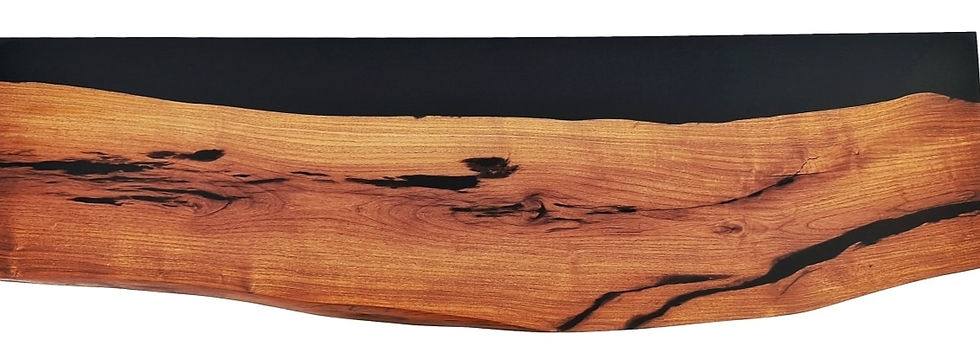Desirable defects; burls, knots and twists as design elements
- Joshua Carver
- Oct 30, 2023
- 2 min read
Updated: Oct 31, 2023

Some of the most beautiful aspects of the trees I work with are also some of the most challenging to incorporate into traditional furniture building. Burls, knots, splits and twists all present their own difficulties throughout the building process and are often not used as building lumber because of the problems they can cause in a joined tabletop. A spot where a tree is forced to grow sideways will often have incredible figuring and chatoyancy where the rings grew unevenly, but milling crooked wood can be a problem all its own not to mention trying to figure out how a slab shaped like an “L” gets built into your tabletop, but with the right tools and knowledge, you can take this bend and build it right into your design from the get-go.

Burls are formed when the wood grain turns back in on itself, the grain in a burl gets incredibly hard with the figuring forming incredible patterns as the rings twist back and forth around each other. Trying to saw through burls and smooth the grain out is difficult but the results can be spectacular and is more than worth the trouble for me!

Knots form when a branch grows off the main trunk. The beautiful concentric patterns that form in knots can be so pleasing but often include splits and voids that need specialized knowledge and require extra steps to fill and smooth. For me, seeking out these types of desirable defects causes all kinds of headaches and unexpected problems, but the end results are what I work so hard for.

It isn’t the easy path, but the satisfaction that comes from making something beautiful out of what would often be discarded at a traditional mill or by a traditional builder is its own sort of reward. The knowledge that this wood was elevated, instead of set aside, given another chance to provide happiness and enjoyment to my clients for generations to come is part of the pride that drives me to craft and create furniture the way I do.




Comments